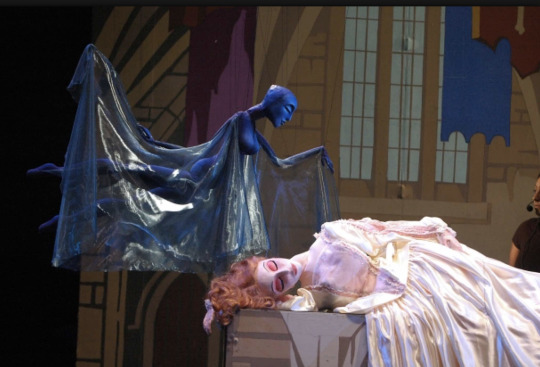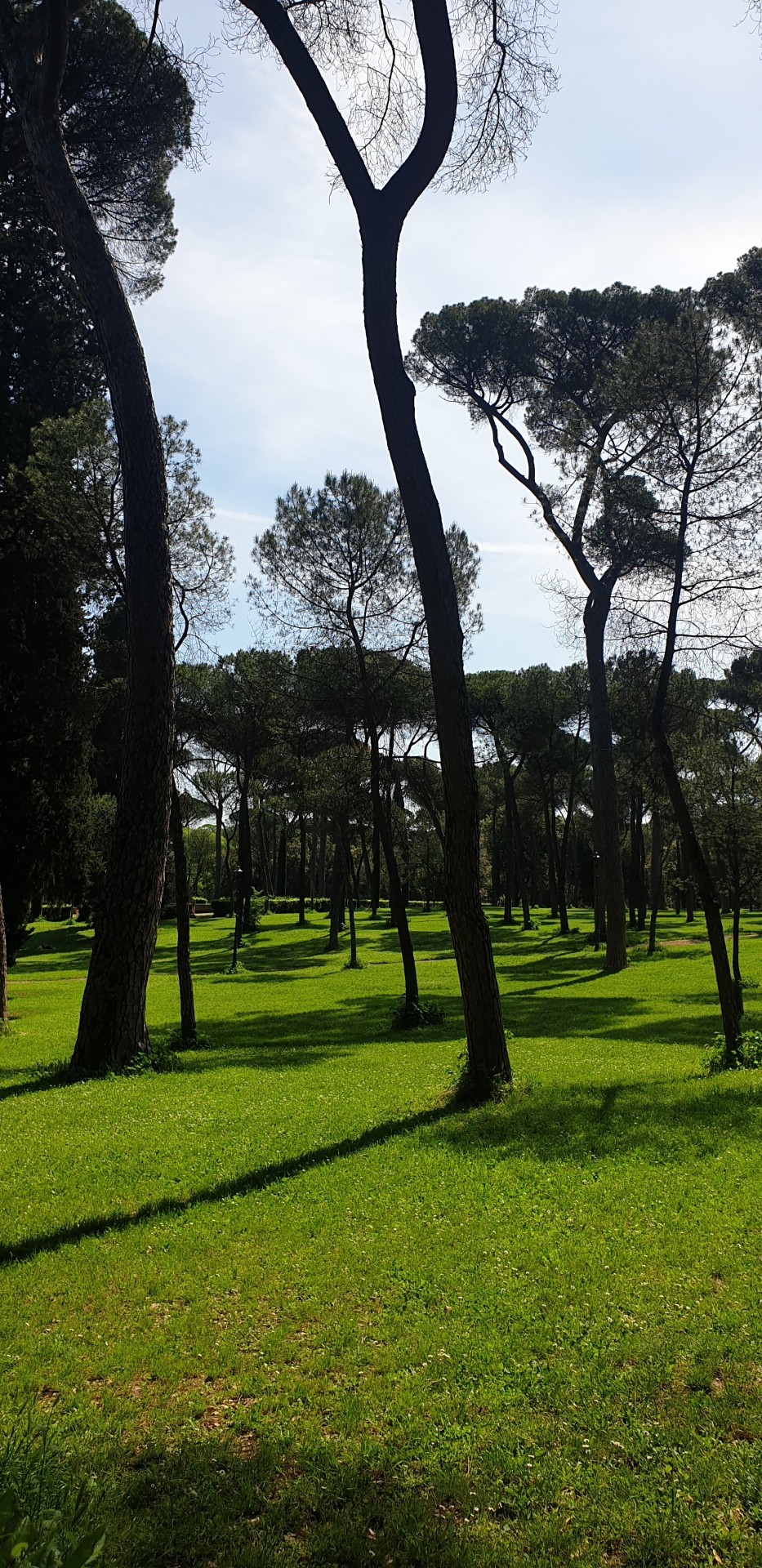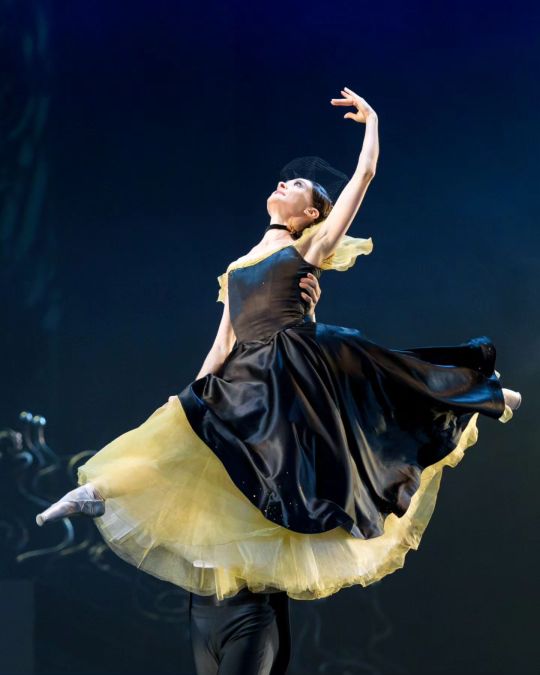#Ottorino Respighi
Explore tagged Tumblr posts
Text
youtube
Ottorino Respighi (1879-1936) : Sei pezzi for violin and piano P 31 (1901)
I. Berceuse: Andantino 0:00 II. Melodia: Andantino mosso - Largamente - Tempo primo 3:25 III. Leggenda: Lento - Più mosso - Agitato - Tempo primo 6:55 IV. Valse caressante: Tempo lento di valzer 12:30 V. Serenata: Andante calmo 16:40 VI. Aria: Lento - Più mosso - Poco meno 19:30
Performed by Marcia Crayford (violin) and Diana Ambache (piano).
7 notes
·
View notes
Video
youtube
Andrei Tarkovsky - The Sacrifice / Ottorino Respighi - Antiche danze ed arie per liuto, Suite No. 3, P. 172: III. Siciliana.
En The Sacrifice (1986) de Andrei Tarkovsky, la escena del niño con el cubo es uno de esos momentos cargados de simbolismo que caracteriza la obra del magistral director. Tarkovsky es conocido por su enfoque meditativo y visualmente poético, y esta escena no es la excepción. El niño, quien representa la inocencia y la esperanza en un mundo caótico y amenazado, sostiene el cubo con un gesto que puede parecer trivial, pero que en el contexto del film está lleno de significados profundos. El cubo puede interpretarse como un símbolo de la capacidad de carga del ser humano, de la voluntad de recoger y preservar aquello que es esencial, incluso en circunstancias extremas.
Dada la naturaleza existencial y espiritual de The Sacrifice, la imagen del niño podría verse como un eco de la pureza que se busca en medio de la devastación y la desesperación. La escena también resalta el contraste entre lo frágil y lo trascendental, el niño es pequeño e indefenso, pero sostiene una carga simbólica que resuena con las preocupaciones más grandes de la humanidad.
6 notes
·
View notes
Text
youtube
雷史畢基(Ottorino Respighi, 1879-1936):交響詩「羅馬之松 Pines of Rome」 指揮/Conductor maestro: Nejc Bečan 管弦樂團: Gimnazija Kranj Symphony Orchestra 首席小提琴手/Concertmaster: Nina Pirc; 音響師/Sound engineer: Matjaž Culiberg; Head of Production: Grega Jeraša; Director: Primož Zevnik
#ottorino respighi#1879-1936 italian#nejc bečan#b. 1984 slovenian#gimnazija kranj symphony orchestra#nina pirc/ slovenia classical violinist#Youtube
5 notes
·
View notes
Text



OTD in Music History: Composer and master orchestrator Ottorino Respighi (1879 - 1936) watches as one of his greatest masterpieces, the famous tone poem “Pines of Rome,” receives its world premiere in Rome exactly 100 years ago. Respighi is widely recognized hailed as one of the greatest orchestrators in history -- but few people are aware that he actually studied with the man who literally “wrote the book” on modern orchestration, Nicolai Rimsky-Korsakov (1844 - 1908), for several months in Russia during 1900-1901. Respighi's remarkable gift for orchestration is on resplendent display in his most famous work, a celebrated trilogy of tone poems centered on Rome and entitled “Fountains of Rome” (1917), “Roman Festivals” (1928), and of course the famous "Pines of Rome.” While the entire trilogy remains popular, the lushly scored “Pines of Rome” is easily the most frequently performed and recorded out of all of Respighi’s works; indeed, it is arguably one of the most popular purely orchestral works ever written by any Italian composer, period! PICTURED: A beautiful large photographic portrait of Respighi which he signed and inscribed to a friend in 1931. The friend in question was Alberto De Angelis (1885 - 1965), a writer and journalist who covered musical matters in Italy. The inscription reads: "Ad Alberto De Angelis in ricordo d’una gradita visita ai 'Pini'" ("To Alberto De Angelis in memory of a welcome visit to the 'Pines'"), an apparent nod to his own "Pines of Rome."
#classical music#opera#music history#bel canto#composer#classical composer#aria#classical studies#maestro#chest voice#Ottorino Respighi#Pines of Rome#classical musician#classical musicisns#classical history#musician#musicians#diva#prima donna#history of music#historian of music
3 notes
·
View notes
Text
Sleeping Beauty Spring: "La Bella Dormente nel Bosco" ("The Sleeping Beauty in the Wood") (1922 Italian opera by Ottorino Respighi)

Name any famous story, and it's almost certain to have been adapted as an opera, whether or not that opera is often performed. Here we find an Italian operatic Sleeping Beauty, with a libretto by Gian Bistolfi, and music by the renowned composer Ottorino Respighi, best known for his tone poems Fountains of Rome, Pines of Rome, and Roman Festivals. It was originally conceived and performed as a marionette opera, with the story enacted by puppets while the singers sang from offstage. While rarely performed today, it does have occasional revivals, some with singing actors performing the roles onstage as in any other opera, and others with marionettes. One complete sound recording is also commercially available, as is a filmed performance from the Teatro Lirico di Cagliari.
Divided into three acts, but fairly short at an hour and forty minutes long, this opera follows the familiar plot of the fairy tale, yet with interesting creative embellishments. Act I opens with an atmospheric nature scene where a nightingale, a cuckoo, and a chorus of frogs sing their evening songs, before the King and Queen's ambassador arrives in search of fairies to attend the newborn Princess's christening, and seven fairies heed his call. At the christening, the villainous Green Fairy curses the Princess to prick her finger at age twenty rather than fifteen or sixteen (some productions of Tchaikovky's ballet make the same change), and not to die, but to sleep forever. Twenty years later, in the old spinning woman's tower, the spindle itself is sentient and sings, as does a cat: the Princess dances a cheerful dance with the two of them, but when she pricks her finger, the spindle gloatingly reveals itself as an agent of the Green Fairy. The following scene begins comically, with pompous doctors trying to diagnose the sleeping Princess's "illness," but then gives way to lamentations by the King, the Queen, and their court. That is, until the kindly Blue Fairy arrives to put them all to sleep as well, and only now does she alter the curse so that it will break when the Princess receives "the kiss of love." In place of the traditional briars or thick forest surrounding the castle, giant spiders weave an enormous web around the castle to protect it.
Act III reveals an especially unusual and quirky change from traditional versions of the story. The Princess and her court have slept for three hundred years rather than just one century, and the action now takes place in the 1920s of the opera's premiere. The entourage of Prince Aprile (yes, his name means "April" – the libretto is full of springtime imagery) includes a club of rich Americans led by the comical "Mr. Dollar Cheque," who resolves to buy the sleeping Princess after they learn her story from a woodcutter. But Prince Aprile takes a more romantic approach and battles the last of the monstrous spiders, causing the web to fall away, and then wakes the Princess with a kiss. After the lovers sing a romantic duet, the newly awakened court joins the modern world in a playful dance finale, which starts as a minuet and ends as a foxtrot.
Respighi's music lacks any particularly "hummable" melodies, but its beauty stands out all the same, with a tone of shimmering fairy-tale Romanticism balanced here and there with moments of humor. The influence of many great Classical and Romantic composers can be heard, particularly from Wagner, but with a welcome lighter touch than the famous German composer brought to his operas. The "modern day" final act also includes passages of ragtime and jazz, which somehow never clash with the rest of the score's Romanticism.
Ultimately, this opera's blend of gossamer beauty and quirky playfulness give it a unique charm. Whether or not it's anyone's favorite opera, or anyone's definitive version of Sleeping Beauty, it most definitely deserves to be performed more often. At any rate, as both an opera lover and a fairy tale lover, I'm glad to have discovered it, and I plan to listen to it again before long.
@ariel-seagull-wings, @thealmightyemprex, @faintingheroine, @reds-revenge, @thatscarletflycatcher, @comma-after-dearest, @the-blue-fairie, @paexgo-rosa, @autistic-prince-cinderella
#sleeping beauty#fairy tale#sleeping beauty spring#opera#la bella dormente nel bosco#ottorino respighi#gian bistolfi#1922#italy
64 notes
·
View notes
Text
Ottorino Respighi: Berceuse, P. 38 (Chamber Orchestra of New York, Salva...
youtube
#youtube#music#classical music#20th century#chamber orchestra of new york#orchestra#ottorino respighi
2 notes
·
View notes
Text

Ottorino Respighi
(9 July 1879 – 18 April 1936)
Happy Birthday, Otto!
#Respighi#Ottorino Respighi#music#classical music#composer birthday#happy birthday#the birds#the fountains of rome#the pines of rome#roman festivals#ancient airs and dances
24 notes
·
View notes
Text
youtube
Ottorino Respighi, Notturno in G flat major, P. 011: No 3(1902).
Konstantin Scherbakov, piano.
V.
7 notes
·
View notes
Text

I pini di Villa Borghese, Roma
3 notes
·
View notes
Text
Sofia Romanova and Vsevolod Tabachuk

Sofia Romanova София Романова as “Anna Karenina Анна Каренина” and Vsevolod Tabachuk Всеволод Табачук as “Count Aleksey Vronsky Граф Алексей Вронский”, “KareninA КаренинA”, based on the novel of the same name by Leo Tolstoy Лев Толстой, choreo by Vera Arbuzova Вера Арбузова, production design by Violetta Zhigalina Виолетта Жигалина, music by Benjamin Britten, Leonid Levashkevich Леонид Левашкевич, Wolfgang Amadeus Mozart, Franz Liszt, Claudio Monteverdi, Sergey Rachmaninoff Сергей Рахманинов, Pyotr Tchaikovsky Пётр Чайковский and Ottorino Respighi. Closing of the 28º Season Astrakhan State Opera and Ballet Theater Астраханский Государственный Театр Оперы и Балета, Astrakhan, Astrakhan Oblast, Russia (June 21, 22 & 23, 2024).
Note I: This blog is open to receiving and considering any suggestions, contributions, and/or criticisms that may help correct mistakes or improve its content. Comments are available to any visitor.
Note II: Original quality of photographs might be affected by compression algorithm of the website where they are hosted.
Source and more info at: Photographer Aleksandr Potapov on Telegram Photographer Aleksandr Potapov on Facebook Photographer Aleksandr Potapov on Instagram Photographer Aleksandr Potapov on Instagram (Portraits) Photographer Aleksandr Potapov on Instagram (Theatrical Photography) Photographer Aleksandr Potapov on VKontakte (Theatrical Photography)
#Aleksandr Potapov Александр Потапов#Anna Karenina Анна Каренина#Astrakhan State Opera and Ballet Theater Астраханский Государственный Театр Оперы и Балета#Benjamin Britten#Claudio Monteverdi#Count Aleksey Vronsky Граф Алексей Вронский#Franz Liszt#Leo Tolstoy Лев Толстой#Leonid Levashkevich Леонид Левашкевич#Ottorino Respighi#Pyotr Tchaikovsky Пётр Чайковский#Russian Ballet#Sergey Rachmaninoff Сергей Рахманинов#Sofia Romanova София Романова#Vera Arbuzova Вера Арбузова#Violetta Zhigalina Виолетта Жигалина#Vsevolod Tabachuk Всеволод Табачук#Wolfgang Amadeus Mozart#Dans#Danse#Dance#Danza#Dancer#Dansen#Balet#Ballet#Балет#Ballett#Balletto#Balerino
0 notes
Text
youtube
Ottorino Respighi (1879-1936) - Violin Sonata in B minor, P 110 for violin and piano
00:00 - I. Moderato 09:59 - II. Andante espressivo 20:47 - III. Allegro moderato ma energico
violin - Leonidas Kavakos,
piano - Yuja Wang
7 notes
·
View notes
Video
youtube
Andrei Tarkovsky - The Sacrifice / Antiche danze ed arie per liuto
“If you look for a meaning, you’ll miss everything that happens.”
― Andrei Tarkovsky
21 notes
·
View notes
Text
Pavarotti- Resphighi- Nevicata
youtube
Ma nella calma immensa
Torna ai ricordi il core
E ad un sopito amore
Pensa ❤️
1 note
·
View note
Text
youtube
daily song rec 35
1 note
·
View note
Text
Coming up next in Sleeping Beauty Spring:
Ottorini Respighi's 1922 opera La Bella Dormente nel Bosco
This filmed performance has no English subtitles, unfortunately, but at least it's complete.
youtube
6 notes
·
View notes
Text
Ottorino Respighi : Aria and Berçeuse for string orchestra P 32/38 (1901...
youtube
6 notes
·
View notes